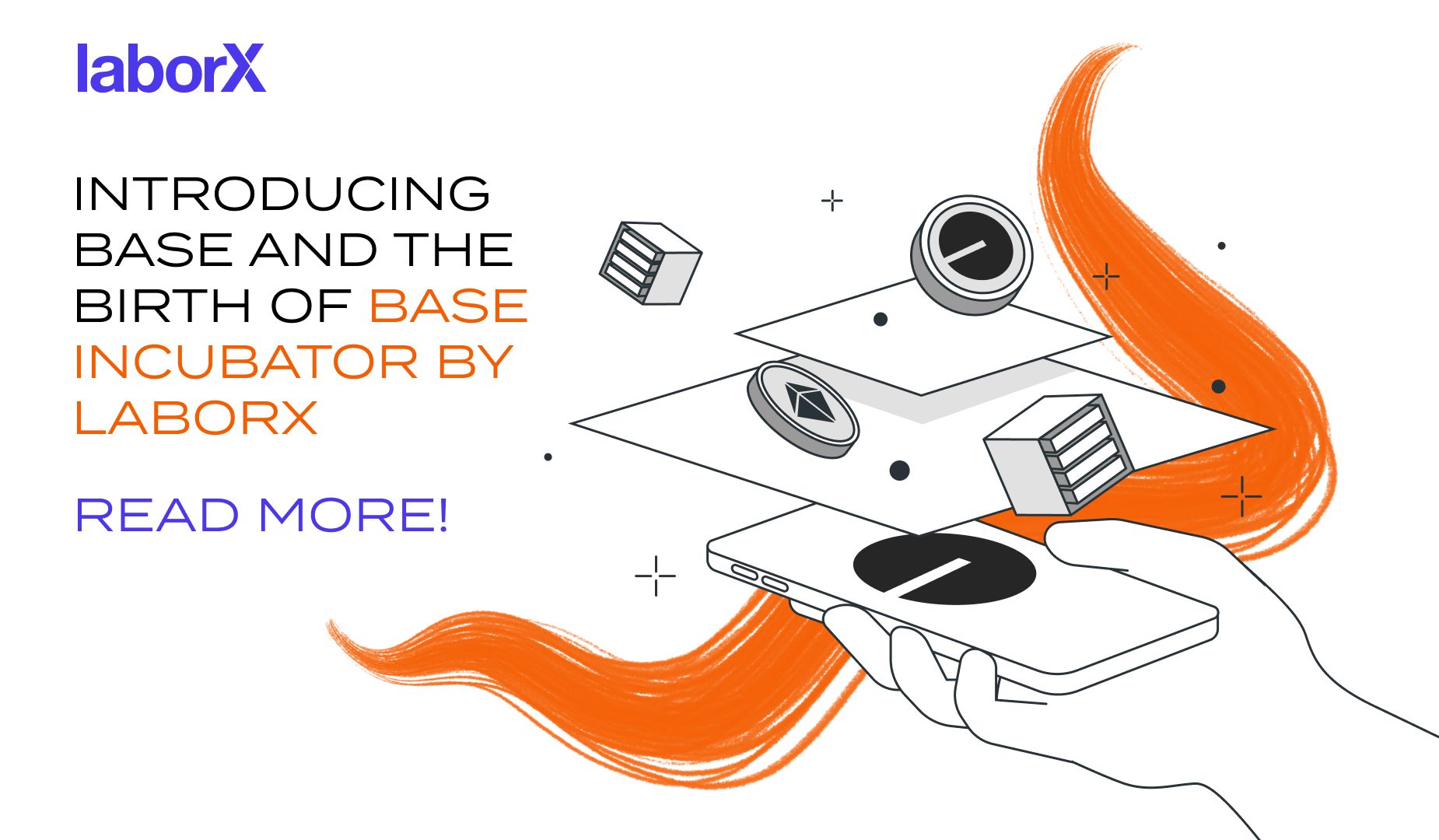
Embracing Change: HR in the World of Digital Assets
Hotcoin’s HR shares her journey from traditional industries to the world of Web3 and crypto, highlighting key insights on thriving in this space.
Read
Adapting to decentralised structures and dynamic team configurations, HR teams experience a radical shift in the Web3 space. Human Resources must go beyond their traditional responsibilities as companies adapt to the new work paradigm to guide employees through the complicated waters of increased independence, teamwork, and community input.
A results-driven performance model, creative incentive systems, and a different approach to communication are essential for managing decentralised teams. To gain practical insights into this transformative landscape, we interviewed Nelson Lopez, Global Head of People at Gate.io, who shares firsthand perspectives on leading HR teams in the decentralised age.
Diving into HR management in Web3, you'll need a solid grasp of traditional HR fundamentals, like understanding organisational dynamics and talent strategies. You’ll also need a good grasp of these fundamentals, so you know exactly what to dismiss and not get stuck on.
I believe what sets Web3 apart is its tech-centric nature, so curiosity and a willingness to learn about blockchain and decentralised systems are key, more so than legacy HR practices and assumptions. Especially when it comes to thinking you know better than the business and people you’re trying to work with. Understand how the environment changes and lean into it hard – it’s not an existential threat, but he inability to adapt is.
For a deep dive, engaging with DAO governance, understanding smart contracts, and active participation in Web3 communities are essential. It's about blending HR principles with blockchain's innovative spirit. Start by joining DAOs and learning from the community; it's a practical and immersive way to get up to speed. And where HR and Web3 seem to clash, give preference to Web3. You’ll be enabling the business, people, and results while giving yourself a chance to learn to do HR differently.
Practical skills? Get comfortable with digital tools and platforms that support remote work—think the likes of Slack, Zoom, Trello, or their Web3 equivalents. A must-have is adaptability. The Web3 world moves fast, and being able to pivot and embrace new trends is crucial. I make it a personal OKR to join online blockchain courses and attend Web3 meetups to immerse myself in the culture and technology.
My day is a blend of strategy and connection. Mornings often start with catching up on messages from different time zones—thank you, efficient comms tools! Then, it's deep-dive time into aligning our HR initiatives with the broader goals of our projects.
A big part of my day is connecting with global HR and leadership, whether through one-on-one check-ins or group catch-ups, all online. The goal is to keep a pulse on the teams’ morale and progress, ensuring we're all moving in sync. Noon might find me actively discussing People strategies or specific challenges across our multiple locations worldwide, always with an eye on how to better support our remote, global team and align business and People.
Web3 shakes up the traditional HR playbook with its emphasis on autonomy and flat hierarchies. The key adjustment? Embrace flexibility. Instead of top-down mandates, think of HR as facilitators, guiding and steering teams to self-organise. Use one of the many available tech stacks for credit and voting-based, democratic decision-making, allowing everyone to have a say in HR policies.
From a technical standpoint, I see a lot of potential in being able to use smart contracts for more transparent and automated HR processes like onboarding and offboarding, goals and performance management, rewards culture, compliance, and so on. We can do more with less time spent, increased trust, and therefore improved engagement.
This shift towards a more participatory approach doesn't just happen; it requires fostering a culture of trust and openness, encouraging team members to take initiative and contribute to shaping the organisation.
Web3 gives you a great opportunity to walk the walk, when it comes to decentralization, and a very welcoming audience for it. Community and culture play a huge role here, and you will win your People over by embracing it
Yes, but luckily we’re seeing more and more on-chain solutions for the hiring and onboarding side of things. From selection processes that rely on on-chain data, automated contracting, tokenized compensation, and gamified onboarding, Web3 keeps up with offers to do it in a culture-fit way.
Then, working with a global team is incredibly rewarding but comes with its fair share of challenges—time zones, cultural nuances, and ensuring everyone feels connected, to name a few. Time and time again, I find that clear, inclusive communication is your best friend here.
We use a mix of asynchronous communication for flexibility and synchronous meetings when real-time collaboration is key. Cultural sensitivity is huge; celebrate diverse needs, reward diverse contributions, and make space for team members to share value from their backgrounds. Again, there’s a ton of tech that can be a lifesaver for working across time zones without driving everyone crazy.
Decentralisation should come into play by empowering regional teams and individuals to make decisions that best suit their local contexts, sharing a stake in a more inclusive and adaptable work environment.
Remember, you’re engaging with an audience used to a highly participatory culture. I’ve found that setting clear, shared goals is step one. Make sure everyone understands the collective goal lines and their role in it.
Then, don’t be afraid to create spaces for open dialogue, and use platforms like Discord for daily conversations and monthly town halls for bigger discussions. It's about giving team members the freedom to explore and contribute ideas while ensuring those ideas move us toward our common objectives.
Having regular feedback loops, where everyone can voice their thoughts and see how they fit into the bigger picture, is also essential for maintaining this balance. If you want to take it a step further, decentralisation can be key here, as it allows team members to take ownership of their work while contributing to the collective goals.
For the already initiated, DAO-like platforms can ease this process, where team members can propose, discuss, and vote on initiatives for a tailor-made balance of individual autonomy with collective governance. You can even apply tokenized incentives to encourage participation and individual contributions. This will come with its own set of challenges, but I would also encourage considering smart contracts for fully transparent and fair conflict resolution mechanisms
Absolutely, incentives in Web3 go beyond the traditional. It’s important and advantageous to embrace crypto-based rewards and even governance tokens that give team members a real stake in the project's direction. The way I see it, it’s about aligning and committing individual contributions to the project's success.
For example, completing key project milestones might trigger token rewards, directly connecting team efforts to tangible outcomes, or NFTs as badges for outstanding cultural recognition. These incentives not only motivate but also deepen team members' connection to the project, making their work even more meaningful.
Bridging the gap between technical and non-technical team members is all about fostering mutual understanding.
We’ve found it useful and appreciated to arrange regular AMA sessions where tech teams demystify what they're working on and non-tech teams share insights from the community and user feedback. This isn’t necessarily something new or unique to Web3, but it’s still effective.
Creating a shared knowledge base, accessible to all, helps demystify complex concepts. Tools like Notion are great for this, allowing us to build a collaborative space where everyone can contribute and learn, regardless of their technical background.
Depending on the company culture, transparency might come more naturally or not, but overall, it's been proven useful to allow People to know what others are working on as a source of fresh ideas and unexpected contributions. This is also a form of decentralisation, as you’re promoting cross-functional teams where technical and non-technical members pitch in on projects, breaking down silos and fostering a culture of shared learning, respect, and progress.
In the remote-first, results-driven world of Web3, we focus on what you achieve, not just the hours you put in. Performance metrics are empirically tied to project outcomes and contributions to team goals.
Goals, delivery, and feedback can effectively be recorded on-chain, dApps can help in real-time target and success management, and tokenized voting systems can encourage peer review and performance evaluation.
Once again, there are plenty of tech tools for continuous performance feedback that will match your projects’ needs, specifically moving away from the traditional annual review to a more fluid model of ongoing conversations about progress and development. This approach allows us to be more agile - I mean, the attitude, not the dogma—adapting goals and support as needed to align with the dynamic nature of Web3 projects.
The market moves faster than your scheduled progress reviews, so have them more often. Daily is a good starting point. Automation is a great next step. On-chain is the future.
Supporting the well-being of remote teams will require you to be proactive and intentional. People don’t see you so you need to make sure they know you’re there, so checking it regularly is key - whether you have 1-on-1 time, or optimise it for efficiency.
But take pulse checks regularly, both scheduled and spontaneously. It will bring you all closer and generate a lot of actionable data for HR. Also, understand what is valued culturally across the regions you work in, not just work-wise but personally. Have some fun with your comms tech, even Metaverse-based, and create channels dedicated to non-work interests to help maintain a sense of community.
I also like to advocate for 'no meeting' days to give everyone a breather from the screen. Acknowledging the importance of disconnecting is crucial for long-term sustainability in remote work environments.
There’s potential for Web3 support here as well. For instance, we’re seeing projects gamifying aspects of work, tokenizing social interactions, and on-chain delivery-based work schedules. It’s a fun world of options to explore, many of which are developed within the teams themselves. As HR, you have access to innovative tech teams who will be your audience anyway, so leverage and brainstorm with them.
Considering the lack of conventional hierarchies, how can HR encourage workers to take charge of their own professional and career advancement?
In flat-structured Web3 organisations, personal growth is about seizing opportunities and being proactive. You can argue People are more empowered in Web3 to define their careers, but this doesn’t mean HR should dismiss itself from supporting development.
Encourage this by making resources available for decentralised learning and development through online communities and platforms for tokenized skill-building, innovation, and mentorship. Allowing team members to lead projects or take on new challenges helps them to grow and showcase their abilities.
Regular career check-ins help guide these efforts, ensuring team members feel supported in their growth paths and understand how their aspirations align with the organisation's needs. This goes back to the performance tracking point. The results bias in Web3 allows you to read much clearer relationships between contributions, impact, and progress.
Leveraging technology is what will ensure the survival and thriving of Web3 HR. Not just in Web3, actually, but across industries and businesses. It’s a matter of time before the world catches up with what Web3 can do for HR.
For instance, in recruitment, blockchain can offer new ways to verify credentials securely. AI helps streamline the talent-matching process, ensuring we connect with candidates whose skills and values align with our projects.
When it comes to onboarding and talent management, decentralization and shared ownership make processes smoother and more engaging, providing clear pathways for new team members to integrate and excel within projects.
AI and machine learning are already showing promise in predictive analytics for talent management and retention strategies.
These technologies not only streamline HR processes but also mirror the innovation at the heart of Web3, providing a cohesive experience from recruitment to day-to-day management.
Yes, there are challenges, like accountability after decentralisation and bias replication in AI, but the potential for improvement, compared to legacy practices, is undeniable.
HR will either keep up or perish. It will evolve into something eventually unrecognizable from what it is today, or face diminishing relevance. And we don’t have to do much for this fate to come true; the world of work will do that for us as it evolves.

Hotcoin’s HR shares her journey from traditional industries to the world of Web3 and crypto, highlighting key insights on thriving in this space.
Read
Discover how Web3 is reshaping HR practices with insights from a leading expert in the field.
Read
Discover Base's innovative L2 solution addressing scalability, security, and user experience challenges in crypto. Learn about Base Incubator by LaborX, fostering growth and innovation within the Base ecosystem.
Read